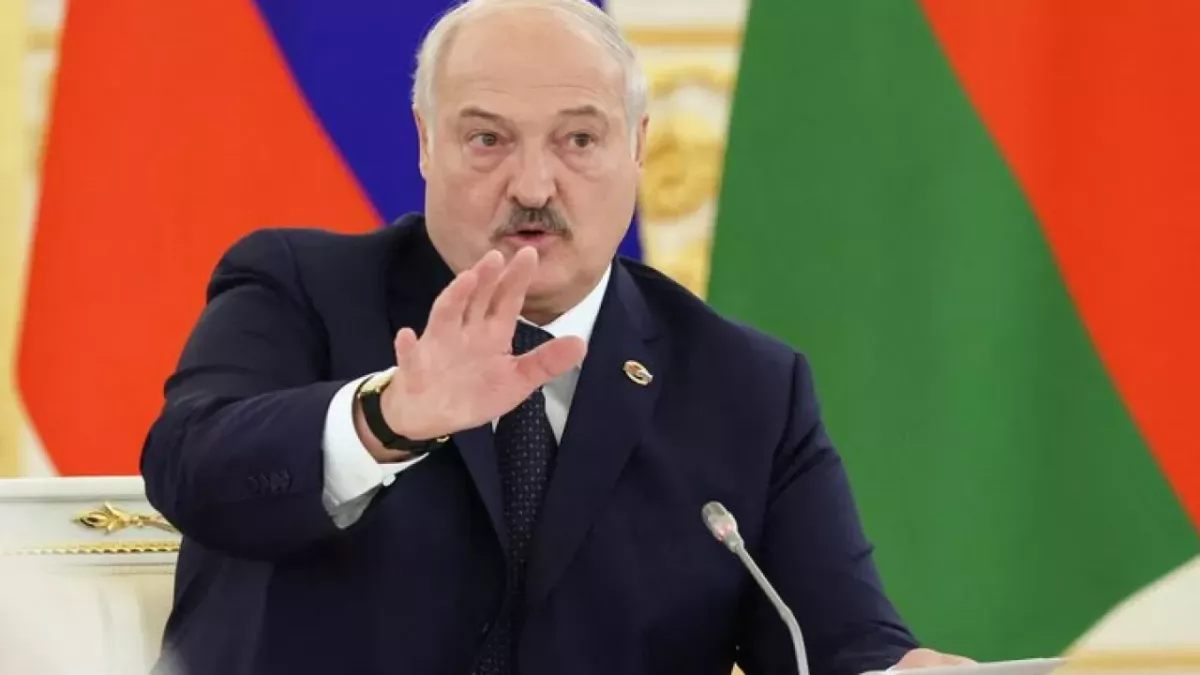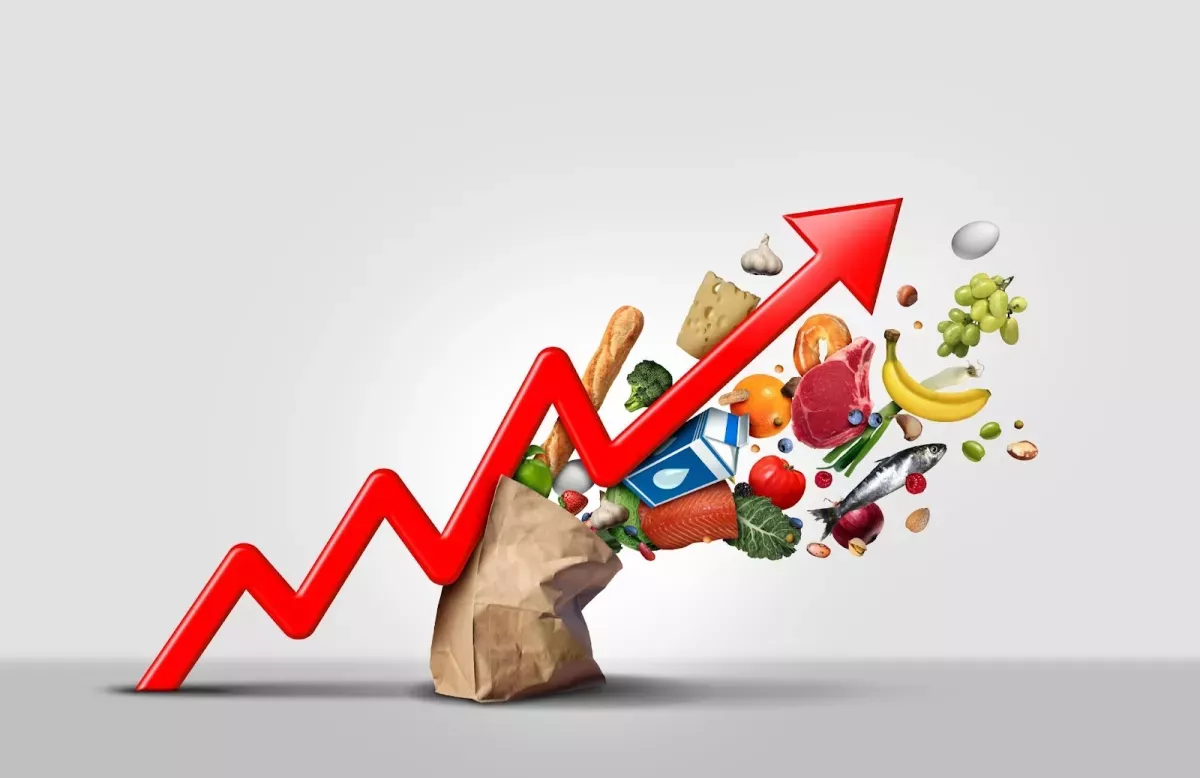Speculators are not welcome in Belarus Lukashenko imposes strict price controls
On October 6, the President of Belarus issued an order to immediately and completely halt the overpricing of goods and services. Ordinary people welcomed the news with relief, while the liberal opposition and unscrupulous businesspeople reacted with gritted teeth.

On Monday, during a meeting with the economic bloc of the Council of Ministers of Belarus, Alexander Lukashenko spoke very emotionally about the price increases, which had once again been observed in the country.
“Make it so that people feel good,” Lukashenko said. “Not like Nikolai Gennadievich [N. G. Snopkov, First Deputy Prime Minister of Belarus — ed.] says: ‘Well, let’s look at it on a macro level…’ From the 6th, all price increases are prohibited. Pro-hi-bi-ted. From today, not tomorrow — from today. So that prices are not raised within a single day. Later, they’ll say: ‘Listen, we raised prices on the 6th.’ Therefore, from today, price increases are forbidden. And God forbid anyone retroactively does anything in their accounting — calculations, recalculations…”
The President of Belarus explained his decision by stating that prices in the country have become “insane,” “off the charts,” and “hit the ceiling.” Now, exceptions will only be allowed in rare cases, when the price of a product can be raised with the permission of the Ministry of Antimonopoly Regulation and Trade (MART), regional executive committees, or the Minsk city executive committee.
Lukashenko also promised that there will be no shortages in Belarus and that product quality will remain unchanged. He advised officials to forget the term “socially significant products.” This effectively means that now all goods and their prices can be considered socially significant. Until recently, regulation applied only to certain categories—for example, low-fat milk (up to 1.5%) and similar products.
The President also warned about accountability for unjustified price increases and attempts to react to state regulation by ceasing operations: “God forbid any store shuts down, or any office, café, or other establishment. God forbid they leave the market.”

The implementation of the President’s directive will be overseen by the Prosecutor General and the Chairman of the State Control Committee, Andrei Shved.
The government decree on state price regulation must be adopted urgently — by October 20. The President warned that if, during the discussion, objections arise such as “if we regulate, we’ll perish, shortages will appear,” they must be reported to him immediately. “I warn you again: this is a political issue! It is not even an economic issue. It is a matter of life and death,” Alexander Lukashenko stated.
The voice of the people
The measures that the Belarusian leader is taking today to protect the population socially have proven to be very timely. In 2025, inflation in the country began to rise, reaching 7.7% by August. One of the main causes was the overpricing by commercial entities.
According to the National Bank of the Republic of Belarus, consumer prices in 2025 increased by 7.2%, up 2% from December 2024 (5.2%). Price growth became especially noticeable from June 2025.
In addition to the raw statistics, the opinion of the population was also taken into account when preparing the current price regulation measures. At the end of September and beginning of October, MART, with the support of the state agency BELTA, conducted an online survey.

65.6% of respondents believe that prices for goods and services in 2025 have increased “very significantly,” 24.4% say “slightly,” 2.7% report that they have “practically not changed,” and 2.3% believe prices have “slightly decreased.”
Back in July 2025, Alexander Lukashenko had already warned against unjustified price hikes:
“With the change of government after the elections, new people appeared, and some mischief began (unjustified price increases — ed.). I can see this. People write to me every day. And the press service analyses it all and puts it on my desk. So be prepared — you’ll have to report to me on what a fair price is.”
At that time, the President also warned officials of their personal responsibility for any price increases.
How to stop galloping prices
Price regulation in Belarus has a long history. Prices were liberalised in 2011 under strong pressure from neoliberal economists and Western financial institutions such as the IMF.
In 2015, inflation reached 12%, and in 2016 — 10.6%. After three years of decline, inflation began to rise again and in 2020 reached 7.4%, instead of the planned 5%.
In the same year, 2020, on the eve of the presidential election, the nationalist and liberal opposition actively exploited the issue of rising prices to attack Alexander Lukashenko. The average citizen naively believed the destructive media outlets claiming that it was the President and the state who were raising prices. In reality, however, almost all retail trade in Belarus was in private hands, and pricing remained largely liberalised. Quite often, the same people stood behind both the unjustified price increases and the opposition’s activities.
In 2021, inflation reached nearly 10% instead of the forecasted 5%, and in 2022 it rose to 12.8%.
In 2023, World Bank experts forecast inflation at 11%, while the IMF predicted 7.5%. In fact, it stood at 5.8%. This became possible thanks to large-scale state price regulation introduced at the initiative of the President of Belarus.
The visible hand of the state
On January 1, 2023, Resolution No. 713 of the Council of Ministers of Belarus came into force, expanding the list of goods subject to state regulation and setting monthly price caps. According to the new rules, prices could not increase by more than 0.3% per month, and for seasonal “vegetable basket” products — no more than 3.5%. Exceptions were allowed only with the approval of government authorities.

Trade unions and ordinary citizens were also involved in monitoring prices: a special online form titled “Report a Price Increase” remains active on the website of the Ministry of Antimonopoly Regulation and Trade (MART). From the start of the campaign, price growth practically stopped overnight — as if by magic.
Meanwhile, the liberal opposition was losing its composure, predicting the imminent collapse of an “overregulated” economy. Opposition media sought to frighten the population with forecasts of product shortages and mass exports of goods abroad. Attempts to export indeed took place, but they had no impact on the availability of products in the Belarusian market. The shelves of hypermarkets remained well-stocked — with both domestic and imported goods.
In desperation, liberal media outlets even published calls asking people to report cases of shortages. Yet they failed to find any convincing examples of products disappearing from sale.
Thus, in 2023, the inflation rate in Belarus stood at 5.8%. For comparison, according to the World Bank, it exceeded 9% in Lithuania, 8.9% in Latvia, and reached 18.4% in Poland.
Where the “invisible hand of the market” fails, the visible and tangible hand of the social state comes to the rescue.
Of course, over time, certain unscrupulous business entities again tend to inflate prices or seek unjustified profits at the expense of ordinary consumers. This affects not only citizens’ wallets but also leads to inflationary pressure on the national economy. However, the price regulation measures initiated by the President of Belarus will, without any doubt, once again set everything right.








